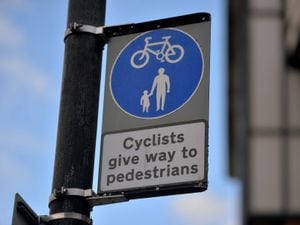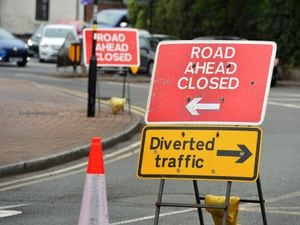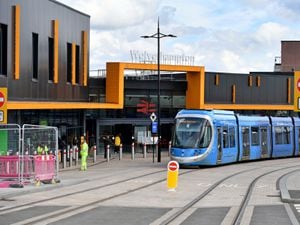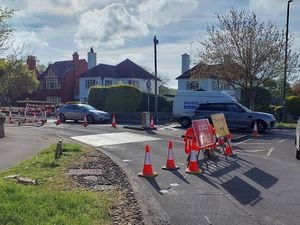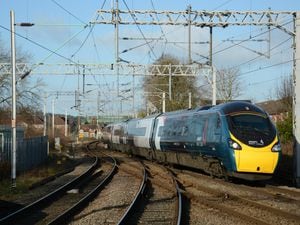Taskforce unveils wish list to make travel safer for women
An action plan has been drawn to make women feel safer on trains and buses in the region by two Government-backed experts.

Recommendations have been made by the first ever Violence Against Women and Girls Transport Champions.
West Midlands Combined Authority chief executive Laura Shoaf and Transport for West Midlands executive director Anne Shaw were appointed by the Department of Transport to find best practice to tackle violence against women and girls on public transport.
The 13 recommendations were revealed alongside shocking statistics which show almost half of women have felt threatened when travelling on public transport.
The champions want women and girls to be involved in the design of public infrastructure projects, including new railway stations, and for more women to work in the transport industry.
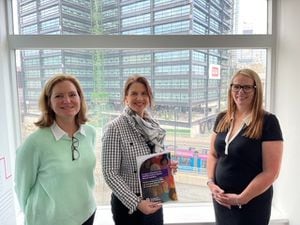
All staff on trains and buses should have Disclosure and Barring Service (DBS) checks and improve real-time information so women and girls know exactly when their bus or tram will arrive.
Also gender responsive budgets need to support the delivery of gender equality infrastructure to tackle violence against women and girls.
Transport Minister Trudy Harrison said: “Far too often we hear stories of women and girls facing violence and harassment on public transport – this is unacceptable.
"Everyone should have the right to travel in confidence and without fear. We thank Anne and Laura for their recommendations and will work tirelessly across Whitehall and with our transport partners to drive these important changes."
Among the nearly 200 respondents at eight round table workshops were charities, passenger groups, women’s transport advocates and victim and survival groups, as well as enforcement officers, transport operators, planners and place making experts.
Laura, who also chairs the national Urban Transport Group, and Anne developed the recommendations following a thorough assessment of violence against women and girls on transport, finding it is having a direct effect on access to opportunities such as learning and employment.
Laura said: "We know that, as women and girls are more reliant on public transport and active travel modes for their mobility needs, fears for their safety can reduce their life opportunities and ambitions.
"This is completely unacceptable. Women should feel able to take up work, training and education opportunities and connect with friends and family without feeling threatened."
“Anne and I are proud to have been chosen by Government as champions to make transport and public places safer for women. Following extensive engagement, we’ve made 13 practical recommendations aimed at preventing violence against women and girls on our transport networks, challenging the attitudes and inequalities that promote it and making it clear that such behaviours will never be tolerated.”
Anne said: "Encouraging more women to help design and operate transport is vital in creating more hostile environments for perpetrators, across all our transport networks."
The first five recommendations are classed as "priorities" and involve:
Making transport infrastructure safer, with a new reporting service to flag up damage
Improvements in the collection of gender disaggregated data
A national PR campaign
Improving training
Increasing staff with DBS clearance.
Medium term goals recommendations include increasing the number of women working in the transport industry, embracing technology and introducing gender responsive budgets.
Longer term priorities are creating a national, intelligence database which captures incident reporting from all transport modes and areas and developing a national education initiative; targeting available resources including staffing and deployment of police, establishing more Safer Travel Partnerships between operators, local authorities and the police
The final recommendation is to continue to raise awareness and make a positive impact through the Violence Against Women and Girls strategy.
Touching, staring and remarks are called out in ad
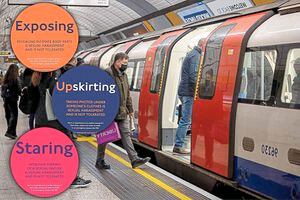
Commuters in the capital have no doubt about the standards expected of them.
Transport for London launched a campaign at the turn of the year encouraging women to call out behaviour that makes them feel threatened or uncomfortable.
It says it wants to put puts the pressure on passengers to behave in a respectful manner, with zero tolerance on any sexual harassment.
The new campaign in the West Midlands hopes to replicate the work that has been done in London. Tfl has outlined seven key offences so that anyone feels confident enough to report any instances of them and know they will be taken seriously.
They are:
Cat Calling: Making unsolicited remarks of a sexual nature
Exposing: Revealing intimate body parts
Cyber-flashing: Sending or showing sexual content without consent
Pressing: Rubbing against someone on purpose
Touching: Touching someone inappropriately
Staring: Intrusive staring of a sexual nature
Upskirting: Taking photos under someone’s clothing
Heidi Alexander, London’s Deputy Mayor for Transport, said: “Any incident of sexual harassment on our public transport network is one too many, and ensuring that women and girls feel safe while travelling around the capital is our top priority.
“This campaign sends a strong message to offenders that unwanted sexual behaviour is never acceptable in any form, and encourages anyone who has experienced or witnessed it to report it. We are working with partners on high visibility patrols, targeted policing and engagement activity to drive down sexual harassment.”

